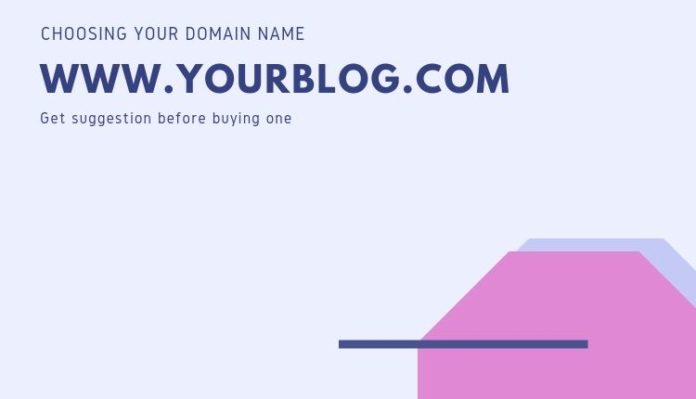Are you looking forward to buying your first home? Are you nervous by any chance?
Buying a home for the first time is one of the most complex experiences you’ll go through. Many first-time buyers also don’t know how a home mortgage works.
But before you set your eyes on your dream home, you want to understand how home mortgage loans work.
You’ll likely spend years, and possibly decades, paying off your mortgage. This is a lifelong decision that you need to consider carefully.
Here’s everything you need to know about buying a house and home mortgage loans:
An Alternative to Paying Upfront
Most of us cannot pay for a home upfront, and as such, need to take a loan to make the payment.
This alternative method for paying upfront is what a mortgage is.
Each month you’ll be expected to make a set payment for your mortgage. There’ll be a wide time frame of when you can pay off your mortgage. For most homeowners, this will be a few decades.
There are serious consequences for missing payments or not paying your mortgage at all.
Laws vary based on your state, so you want to research these beforehand.
Make sure you consider your financial situation to determine if you can take your home mortgage.
Choosing Your Home Mortgage
You’ll have to determine what type of home mortgage works best for you.
For example, if you have a weak credit score you might want to consider a government-backed mortgage. These are more favorable to borrowers with lower credit scores.
You want to research the current interest rates at the time you choose your mortgage.
You might save money by locking in a fixed interest rate (more in the next section).
If you expect to make lower monthly payments, you’ll need to find a long-term payment duration such as 30 years.
If you’re a high earner, you can consider a shorter duration such as 10-15 years.
Interest Rates
All mortgage loans will have an interest rate attached to your monthly payment.
The interest alone is what can add a serious financial burden to your monthly payments.
It’s often the interest rate that prevents homeowners from making their full payments at all!
As such, you must shop around for the best house loan rates before signing up for your mortgage.
The first type of interest rate is a fixed rate. This is a set rate that you’ll pay each month along with your monthly payment. This rate can only get changed if you refinance your mortgage.
The second type of interest rate is an adjustable rate. This interest rate fluctuates depending on the market. This comes after a set period of a fixed rate.
So you might have 5 years of a fixed rate. Then, beginning with the 6th year you’ll start with the adjustable rate.
You might get lucky and have a lower interest rate than your fixed rate.
Now let’s look at how the mortgage process works.
Amortization
This refers to the breakdown of the mortgage payments for the duration of the loan.
For example, the amortization will state that you must pay $X amount each month.
By a set month and year, you should have finished making your mortgage payments.
For the first few years, most of your payment will go toward paying your interest rate.
As the year’s pass, this will switch and most of your funds will go toward the principal.
Making Your Down Payment
Most of the time, you’ll have to make an upfront payment to qualify for a mortgage. This is called a down payment.
If you make a large down payment, you will likely have a cheaper principal each month.
You’ll also likely get a lower interest rate with the large down payment. There are also options for paying a smaller down payment, but this might incur an extra monthly fee.
Before choosing your mortgage you want to study the terms of the down payment and the caveat it brings.
You can also find a mortgage calculator to see what gives you the most flexibility with your payments.
Using an Escrow
You might want to consider using an escrow service when choosing your mortgage.
Your escrow account gets managed by your lender. They might charge an additional small fee each month along with your mortgage.
The main benefit of using an escrow service is that you can use it for paying your homeowners insurance and your property tax.
If you don’t use an escrow service, you’ll have to make these payments on your own.
In most cases, if your down payment is lower than 20% of the mortgage you’ll be required to use an escrow service.
As with homeowners insurance, property tax, and interest rates, you can expect escrow payments to increase or decrease.
The Process
Your first step is to prepare your documentation for applying for a loan. As a general rule, you’ll need to show your bank statements, proof of income, and your credit report.
You want to speak to your mortgage lender if they have any additional requirements.
Once you present your credentials to a mortgage lender, they’ll approve you for a mortgage.
Once you get approved, the next step is to contact a realtor. They’ll help you shop around for houses until you find the right one.
When you close on the house, you then go back to the mortgage lender. They’ll present you with mortgage options.
Once you choose the mortgage of your choice, you’ll get asked to make your down payment.
After you make your down payment, you are now the homeowner! You’ll also be set up to make the mortgage payments each month until you pay it off.
Good Luck with Your Home Mortgage
Now that you know how a home mortgage works, we wish you the best of luck in finding one for your dream home!
Start with doing your research on what type of mortgage works best for your needs. Assess whether you can make a large down payment or a small one.
Plan ahead on how long you can take to make your mortgage payments. You want to study what interest rate scenario works best for you.
After that, you’re ready to find your home and apply for your mortgage! You can find more tips on homeownership on our website!


















